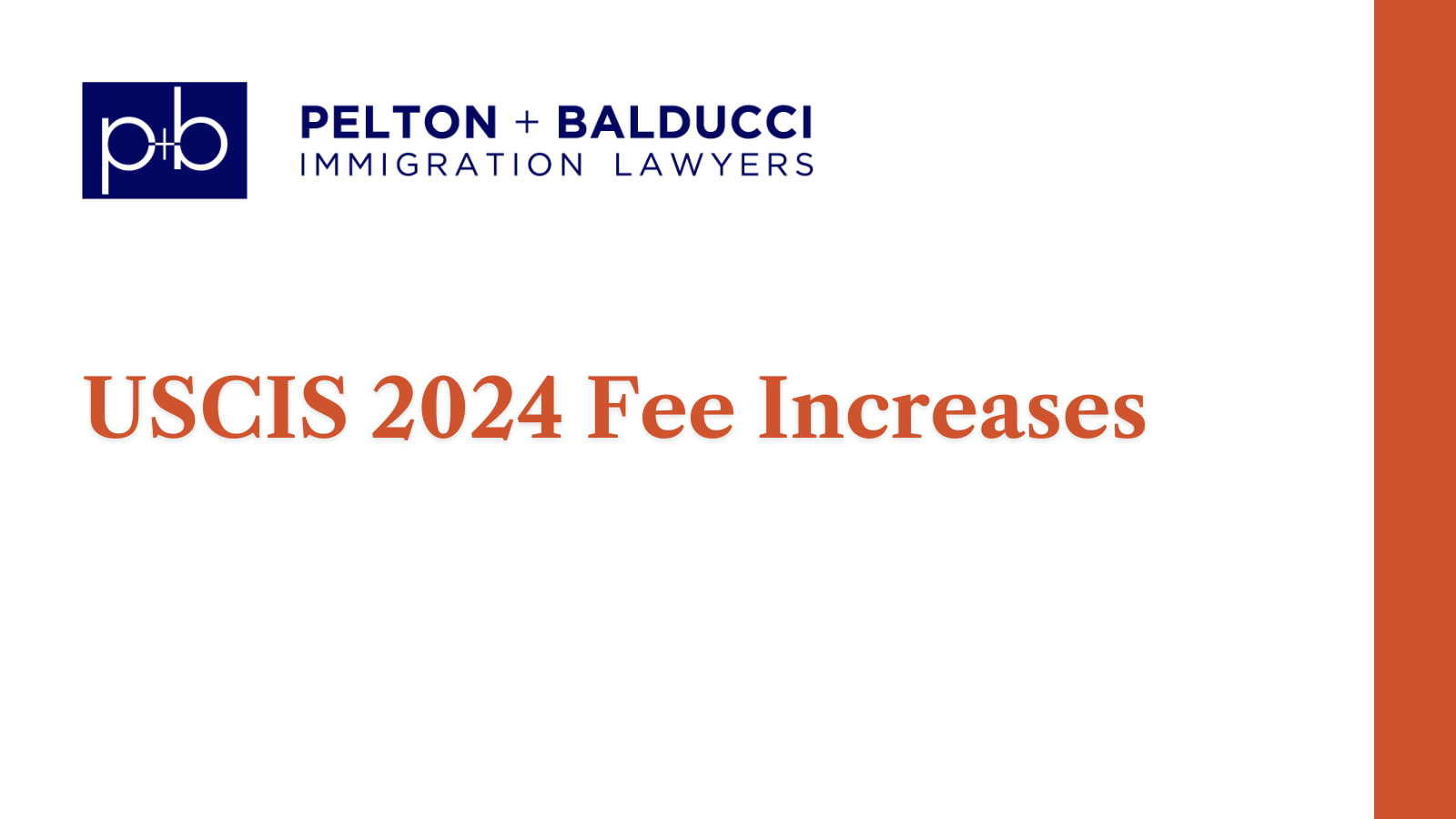The United States Citizenship and Immigration Services (USCIS) announced a change in their fees on January 30, 2024. These changes are set to go into effect on April 1, 2024.
Most fees will increase, but there are important exceptions. In fact, it may be in certain applicants’ interest to wait until after the fee changes go into effect to file.
From our Louisiana immigration attorneys at Pelton + Balducci, here’s what you need to know.
Highlights in the USCIS Fee Changes
Below are some important highlights of the upcoming fee changes. (Note that the new rule is very long, and this is not a complete analysis.)
- Adjustment of status applicants will now have to pay separate fees for applications for employment authorization and for applications for travel authorization (“advance parole”).
- Fees for waiver applications not associated with humanitarian benefits (such as T visas, U visas, and VAWA petitions) will be increased.
- USCIS will be offering $50 discounts for online filing (with limited exceptions).
- The fee waiver policies will be strengthened by codifying them into law (in the form of federal regulations. Previously, the fee waiver policies were implemented by agency guidance, which was more easily changeable.).
- Many applications associated with humanitarian benefits (including SIJS, U visas, T visas, and VAWA petitions) will be exempt from fees.
- There will be expanded fee reductions for naturalization cases. Previously these were available to individuals with incomes between 150% and 200% of the poverty guidelines. Now they will be available to individuals with income between 150% and 400% of the poverty guidelines.
Who may benefit from filing before April 1, 2024?
Any applications mailed on or after April 1, 2024 will be subject to the new fees. But some people may benefit from filing before:
- Family-based petitioners will see higher fees after April 1, 2024.
- Many employment-based petitioners and applicants will see higher fees after April 1, 2024.
- Family- and employment-based green card applicants, in order to avoid additional charges for employment and travel authorization.
Note that although there are important fee reductions and exemptions, the changes represent an overall 26% fee increase, so it’s important to be mindful of your specific circumstances.
Who may benefit from the fee changes and want to wait until April 1, 2024 to file?
In other situations, people may benefit from waiting until this new deadline to file their applications.
- Applicants for humanitarian benefits, such as cases for T visas, U visas, and VAWA petitions. These include I-485 green card applications based on these benefits.
- Naturalization applicants with incomes between 200% and 400% of the federal poverty guidelines.
- Green card renewal applicants, who will see I-90 fees reduced.
While no one likes seeing prices increase, we hope that these increases will help to put USCIS back on track after years of exceptional delays and frustrations for immigrants, their families, and their advocates.
We have already seen improvements in service subsequent to Congressional funding in the 2022 fiscal year to reduce backlogs. This was one-time funding for the backlog crisis, and it is hoped that this fee increase will sustain the systemic recovery USCIS has had over the past year.
Contact Pelton + Balducci Immigration Lawyers today
If you have questions about these fee changes or about your journey as an immigrant in the U.S., feel free to reach out. Pelton + Balducci is here to help.




